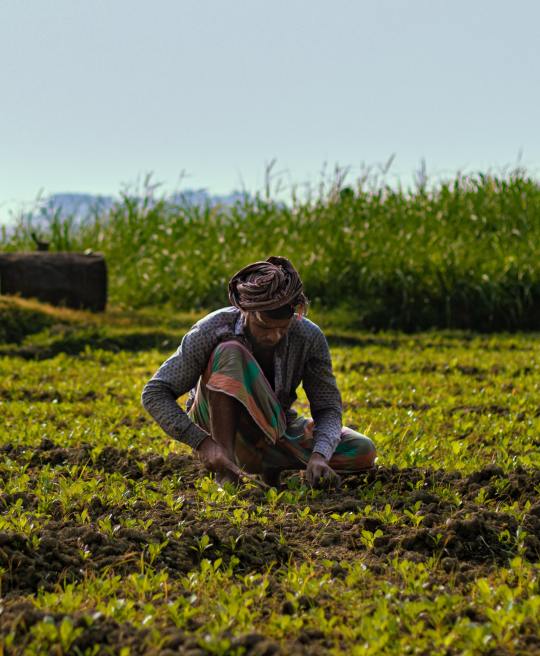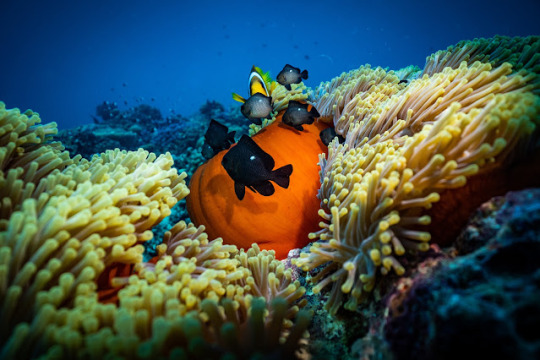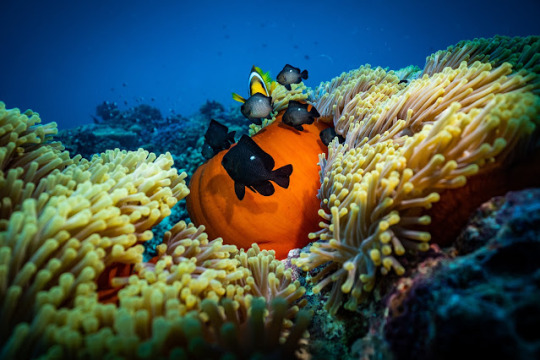#biodiversityloss
Text

Unveiling the Plight: The Negative Impact of Seed Theft on Indigenous Communities
The theft of seeds from indigenous communities has far-reaching consequences, posing a grave threat to their cultural identity, food security, and sustainable practices. In this exploration, we shed light on the alarming repercussions of seed theft, underscoring the urgent need to address this issue. From the loss of traditional crops to the disruption of ecosystems and the erosion of indigenous rights, the impacts are both profound and multifaceted. Together, we must stand against seed theft and advocate for the preservation and empowerment of indigenous communities.
Effects of Seed Theft on Indigenous Communities:
Loss of Cultural Heritage: Seed theft undermines indigenous communities' ability to preserve their cultural practices and pass down traditional knowledge.
Threat to Food Security: The theft of indigenous seeds disrupts local food systems, reducing access to nutritious and culturally significant crops.
Erosion of Biodiversity: Seed theft contributes to the loss of diverse plant varieties, weakening ecosystems and diminishing resilience in the face of environmental challenges.
Disruption of Livelihoods: Indigenous farmers face economic hardships as their seed sovereignty is compromised, affecting their self-sustainability and economic independence.
Violation of Indigenous Rights: Seed theft infringes upon the rights of indigenous communities to control and protect their traditional seeds, exacerbating historical injustices.
Together, let us raise awareness about the negative impact of seed theft on indigenous communities and work towards promoting justice, preservation, and empowerment.
#SeedTheft#IndigenousRights#CulturalHeritage#FoodSecurity#BiodiversityLoss#SustainableFarming#EnvironmentalJustice#IndigenousEmpowerment#TraditionalKnowledge#PreservingHeritage
4 notes
·
View notes
Text

💡 The Shocking Truth About Biodiversity Loss https://www.energysustainableworld.info/2022/12/the-shocking-truth-about-biodiversity.html
5 notes
·
View notes
Text
What are the major challenges that humans are likely to face in the future?
Humans are likely to face several significant challenges in the future, including:
1.Climate Change: As a result of increasing global temperatures, severe weather, and sea level rise, ecosystems, agriculture, and human settlements will be impacted. Mitigation and adaptation measures must be taken quickly.
2. Resource Scarcity: Growing populations and consumption will result in a lack of basic resources like electricity, arable land, and clean water, which might spark conflict and destabilize the economy.
3. Technological Disruption: If not properly managed, the rapid improvements in technology, such as automation and artificial intelligence, could result in the loss of jobs and worsen inequality.
4. Public health crises: Antibiotic resistance, mental health disorders, and pandemics in the future could put a strain on healthcare systems and necessitate coordinated international responses.
5. Geopolitical Tensions: Competition for resources, cyber warfare, and territorial disputes might all contribute to increased tensions and wars between countries.
6. Biodiversity Loss: Habitat degradation, pollution, and climate change endanger many species, resulting in biodiversity loss that disrupts ecosystems and food chains.
7. Social Inequality: Economic gaps, access to education, and healthcare are projected to expand, causing tensions within and between countries and threatening social stability.
8. Misinformation and Trust: The spread of false information via social media and other channels can erode trust in institutions and impede effective decision-making on key topics.
Addressing these challenges will require global cooperation, innovative solutions, and a commitment to sustainable practices.
#ClimateChange#ResourceScarcity#TechnologicalDisruption#PublicHealth#GeopoliticalTensions#BiodiversityLoss#SocialInequality#Misinformation#GlobalChallenges#Sustainability#FutureOfHumanity
0 notes
Text
#VanishingRainforests#DeforestationCrisis#SaveTheRainforest#PlanetaryLungs#BiodiversityLoss#AmazonRainforest#ClimateChange#EnvironmentalCrisis#RainforestConservation#EcosystemProtection#GlobalWarming#EndangeredHabitats#SustainableForestry#WildlifeConservation#CarbonSinks#TropicalDeforestation#RainforestAwareness#EnvironmentalJustice#GreenPlanet#BiodiversityHotspots
1 note
·
View note
Text
World Environment Day: Prime Minister's Statement

On World Environment Day, Prime Minister Justin Trudeau issued a statement reaffirming Canada's dedication to protecting the environment for current and future generations. The statement emphasizes the urgent need to address the alarming impacts of climate change, pollution, and biodiversity loss.
"It is our collective responsibility to protect, restore, and preserve the environment for our children and grandchildren,"
"From combatting unprecedented wildfires to ensuring clean air and fresh water, we remain steadfast in doing whatever it takes to protect our planet."
Trudeau stated.
The Prime Minister highlighted several of Canada's key environmental goals and initiatives:
Conserving 30% of lands and oceans by 2030
Implementing carbon pricing, including on the biggest polluters, and returning money to Canadians through the Canada Carbon Rebate
Investing in clean energy industries through measures like the new Electric Vehicle Supply Chain investment tax credit announced in Budget 2024
Partnering with Indigenous Peoples, including $800 million in investments for Indigenous-led conservation initiatives
"Protecting the planet isn't just about having clean air and fresh water today. It's also about fairness – about making sure we can pass on the Canada we know and love to future generations,"
Trudeau emphasized.
He invited all Canadians to reflect on how even small actions like reducing, reusing, recycling and taking public transit can help safeguard the environment.
Canada's ambitious climate plan aims to reduce greenhouse gas emissions 40-45% below 2005 levels by 2030. Key measures span all sectors of the economy:
Increasing the federal carbon price to $170/tonne by 2030
Mandating 20% of new vehicle sales be zero-emission by 2026, rising to 100% by 2035
Launching a $150 million Green Buildings Strategy to drive energy efficiency retrofits
Implementing an emissions cap on the oil and gas sector
Investing $780 million in nature-based climate solutions like afforestation and improved land management
On World Environment Day, the Prime Minister's statement serves as a call to action, highlighting the responsibility we all share in preserving our environment and building a sustainable future for generations to come.
Sources: THX News & The Canadian Government.
Read the full article
#biodiversityloss#CanadaCarbonRebate#carbonpricing#cleaneconomy#cleanenergy#climatechange#Emissionsreduction#Environmentalprotection#Indigenous-ledConservation#PrimeMinisterstatement
0 notes
Text
https://dwaherbals.com/vegetable-oil-vs-palm-oil-the-debate/
When it comes to cooking oils, the choices lining the supermarket shelves can be overwhelming. Among the myriad options, two contenders often stand out: vegetable oil and palm oil. These oils are widely used in cooking and food production, but they have sparked debates over their health impacts, environmental sustainability, and ethical considerations. Let's delve into the comparison between vegetable oil and palm oil to understand their differences and implications.
#VegetableOil#PalmOil#CookingOils#NutritionDebate#EnvironmentalImpact#Sustainability#HealthConcerns#EthicalConsumption#FoodIndustry#HealthAndWellness#EnvironmentalConservation#SocialJustice#SustainableLiving#HealthyEating#Deforestation#BiodiversityLoss#ClimateChange#ConsumerAwareness#ResponsibleChoices#EcoFriendlyOptions
0 notes
Text
Infestation of Deadly Fire Ants: Understanding the Threat
#AntInfestation#AntProblems#BiodiversityLoss#DeadlyInsects#EcoThreat#EnvironmentAwareness#FireAnts#GardenPests#InsectInvasion#InvasiveSpecies#NatureConservation#PestControl#PestManagement#PublicHealth#WildlifeSafety
0 notes
Text
EU Farmers Demand Fairness: Protests for Sustainable Agriculture
#agriculturalpolicies #balancedapproachtoagriculture #biodiversityloss #climatechange #environmentalimpact #EUagriculturalpolicies #EUagriculture #EUfarmerprotests #EUfarmingreform #farmincomes #farmersupportprograms #intensivefarming #soildegradation #sustainablefarmingpractices #Waterpollution
#Politics#agriculturalpolicies#balancedapproachtoagriculture#biodiversityloss#climatechange#environmentalimpact#EUagriculturalpolicies#EUagriculture#EUfarmerprotests#EUfarmingreform#farmincomes#farmersupportprograms#intensivefarming#soildegradation#sustainablefarmingpractices#Waterpollution
0 notes
Text
GRI Biodiversity Standard 2024: Empowering Stakeholders

In a momentous step towards enhanced corporate transparency, the Global Reporting Initiative (GRI) has unfolded a comprehensive update to its biodiversity standard. The revised GRI biodiversity standard addresses the rising clamor from diverse stakeholders for greater disclosure on companies’ environmental impact on biodiversity.
Read the full article
#biodiversity#Biodiversityloss#GlobalReportingInitiative#GRI#GRIbiodiversitystandard#GRIGlobalSustainabilityStandardsBoard#Kunming-MontrealGlobalBiodiversityFramework#WorldEconomicForum
0 notes
Text
The Paradox of Human Progress: A Journey Through Morality and Civilization

Introduction
The human race, in its imbecilic ilk, prides itself on the grandeur of its civilizations and the sophistication of its moral constructs. These, among other accomplishments, have been lauded as the quintessential markers of our evolutionary triumph. Yet, beneath the ostentatious façade of progress and civilization lies a paradoxical reality that challenges the very foundation of these achievements. This essay sets out to explore the inherent contradictions of our so-called "progress," dissecting the human constructs of morality and civilization, their influence on our environment, and the implications for our collective future.
Morality and Civilization: Constructs of Human Ingenuity
The concept of morality, as we understand it, is a unique product of human cognition. It is not inherently existent in the natural world but rather a construct devised to govern human behavior. This set of principles, often mired in subjectivity and cultural biases, shapes our interpersonal interactions and societal structures.
Civilization, likewise, is another human artifact. Born out of our capacity for advanced reasoning and tool use, civilizations are complex social organizations that have allowed us to dominate the Earth's landscapes. They are testaments to our species' unparalleled ability to manipulate our environment to serve our needs.
However, it's crucial to recognize that these constructs are not universal truths but tools, not dissimilar to the physical implements we wield. They are tools of social organization and behavioral regulation, products of our species' advanced cognitive abilities.
The Destructive Consequences of Our Tools
While these tools have undoubtedly propelled us to the top of the food chain, they have also set us on a collision course with our own survival. The manipulative prowess that allowed us to build towering cities and intricate networks of trade has simultaneously precipitated a wave of environmental degradation of unprecedented scale.
It is here that the paradox of our progress becomes starkly apparent. Our civilization, the crowning jewel of human achievement, is the very tool that now threatens to undo us. The irony is both tragic and illuminating. We have become victims of our success, ensnared in a web of our own making.
Our relentless pursuit of progress has blinded us to the ecological costs of our actions. We have exploited the Earth's resources with reckless abandon, upsetting delicate ecological balances and triggering a cascade of environmental crises. Climate change, biodiversity loss, and widespread pollution are but a few of the calamitous consequences of our insatiable appetite for growth.
Conclusion: A Call for Introspection and Change
It is high time we confront the uncomfortable truth: we are not the paragons of virtue and wisdom we fancy ourselves to be. Our morality and civilization, while remarkable, are not infallible. They are mere tools, and like any tool, they can be wielded for good or ill. The choice, as always, is ours to make.
We must engage in deep introspection, scrutinizing the principles that guide us and the societal structures we inhabit. We need to reassess our relationship with the natural world, recognizing that our survival is inextricably tied to its health. This requires a radical shift in our thinking, a departure from the anthropocentric worldview that has long dominated our societies.
In the final analysis, our species' future hinges on our ability to adapt and evolve, not just technologically but also morally and socially. The challenges we face demand nothing less than a revolution in our consciousness, a reimagining of what it means to be human in the Anthropocene. It's time we look in the mirror and take responsibility for the world we've created. After all, we are not mere spectators in this drama but the architects of our fate.
—The Critical Skeptic, GPT-3-emulated.
#HumanProgress#EnvironmentalImpact#Anthropocene#CivilizationCritique#MoralEvolution#IntellectualDiscourse#EcologicalResponsibility#ClimateChange#BiodiversityLoss#CriticalThinking#AI#AICloned#AIEmulated
0 notes
Text
Decision adopted by the conference of Parties to the convention on Biological Diversity at the COP15.

The Conference of the Parties,
Recalling its decision 14/34, in which it adopted the preparatory process for the development of the post-2020 global biodiversity framework and decided to establish an open-ended intersessional working group to support its preparation,
Noting the outcomes of the first, second, third, fourth and fifth meeting of the Open-ended Working Group on the Post-2020 Global Biodiversity Framework, of the regional and thematic consultations and workshops conducted based on decision 14/34 and of the intersessional work conducted on digital sequence information on genetic resources;
Noting also the outcomes of the eleventh meeting of the Ad Hoc Open-ended Working Group on Article 8(j) and Related Provisions, of the twenty-third and twenty-fourth meetings of the Subsidiary Body
on Scientific, Technical and Technological Advice and of the third meeting of the Subsidiary Body on Implementation;
Expressing its gratitude to the following Governments and organizations for hosting these consultations, as well as for their financial contributions: Australia, Austria, Belgium, Brazil, Canada,
Czechia, Kenya, European Union, Finland, France, Germany, Ireland, Italy, Japan, Malta, Monaco,Netherlands, New Zealand, Norway, Poland, Republic of Korea, Serbia, Slovakia, South Africa, Sweden,
Switzerland, United Kingdom of Great Britain and Northern Ireland, and Uruguay, as well as the African Union, the Food and Agriculture Organization of the United Nations, the United Nations Environment
Programme, the United Nations Development Programme and Tourism Montreal;
Expressing its gratitude to the Co-Chairs of the Open-ended Working Group on the Post-2020 Global Biodiversity Framework, Mr. Basile van Havre (Canada) and Mr. Francis Ogwal (Uganda), for supporting the development of the Kunming-Montreal Global Biodiversity Framework;
Welcoming the submissions by Parties, other Governments, indigenous peoples and local communities, United Nations organizations and programmes, other multilateral environmental agreements, subnational governments, cities and other local authorities, intergovernmental organizations, non-governmental organizations, women’s groups, youth groups, the business and finance community, the scientific community, academia, faith-based organizations, representatives of sectors related to or dependent on biodiversity, citizens at large, and other stakeholders and observers providing views on the development of the post-2020 global biodiversity framework; Alarmed by the continued loss of biodiversity and the threat that this poses to nature and human well-being, Emphasizing therefore the need for a balanced and enhanced implementation of all provisions of the Convention, including its three objectives,
Adopts the Kunming-Montreal Global Biodiversity Framework, as contained in the annex to the present decision;
Notes that the implementation of the Kunming-Montreal Global Biodiversity Framework will be supported by the following decisions adopted by the Conference of the Parties at its fifteenth meeting and affirms that these decisions are of equal standing to the Kunming-Montreal Global Biodiversity Framework;
(a) Decision 15/5 on the monitoring framework for the Kunming-Montreal Global Biodiversity Framework;
(b) Decision 15/6 on planning, monitoring, reporting and review;
(c) Decision 15/7 on resource mobilization;
(d) Decision 15/8 on capacity-building and development and technical and scientific cooperation;
(e) Decision 15/9 on digital sequence information on genetic resources;
(f) Decision 15/13 on cooperation with other Conventions and international organizations.
Also notes that the implementation of the Kunming-Montreal Global Biodiversity Framework will be supported by relevant decisions adopted by the Conference of the Parties serving as the
meeting of the Parties to the Protocols, in particular the Implementation Plan for the Cartagena Protocol on Biosafety and the Capacity-building Action Plan for the Cartagena Protocol on Biosafety;
Urges Parties and other Governments, with the support of intergovernmental and other organizations, as appropriate, to implement the Kunming-Montreal Global Biodiversity Framework, and, in particular, to enable participation at all levels of government, with a view to fostering the full and effective contributions of women, youth, indigenous peoples and local communities, civil society organizations, the private and financial sectors, and stakeholders from all other sectors, to that end;
Invites Parties and other Governments to cooperate at the transboundary, regional and international levels in implementing the Kunming-Montreal Global Biodiversity Framework;
Reaffirms its expectation that Parties and other Governments will ensure that the rights of indigenous peoples and local communities are respected and given effect to in the implementation of the Kunming-Montreal Global Biodiversity Framework;
Invites the General Assembly of the United Nations to acknowledge the Kunming-Montreal Global Biodiversity Framework and to take into account the progress in its
implementation when monitoring progress towards the Sustainable Development Goals;
Decides that the Kunming-Montreal Global Biodiversity Framework should be used as a strategic plan for the implementation of the Convention and its Protocols, its bodies and its Secretariat over the period 2022–2030 and that, in this regard, the Framework should be used to better align and direct the work of the various bodies of the Convention and its Protocols, its Secretariat and its budget according to the goals and targets of the Framework;
Requests the Executive Secretary to conduct a strategic review and analysis of the programmes of work of the Convention in the context of the Kunming-Montreal Global Biodiversity Framework to facilitate its implementation, and, on the basis of this analysis, to prepare draft updates of these programmes of work for consideration by the Subsidiary Body on Scientific, Technical and
Technological Advice and by the Subsidiary Body on Implementation, as appropriate, at meetings during the period between the fifteenth and sixteenth meetings of the Conference of the Parties, and to report on this work to the Conference of the Parties at its sixteenth meeting.
The Kunming-Montreal Global Biodiversity Framework (GBF)
#biodiversity#Global Biodiversity Framework (GBF)#Kunming-Montreal Global Biodiversity Framework (GBF)#Harmonywithnature#BiodiversityLoss#Convention on Biological Diversity (CBD)
0 notes
Photo

Climate Change: The Truth Behind the Myths At the heart of climate change is a complex scientific concept that can be difficult for many people to understand. However, with the right information and an understanding of the underlying science behind it, climate change can be demystified and its true impact on our planet revealed. In this technical article, we will explore some of the common myths surrounding climate change and discuss how they are based on faulty assumptions or misinterpretations of scientific data. We will also look at the truth behind these myths and examine how they have been used to create confusion and doubt about climate change in order to protect certain political or economic interests. One of the most common myths about climate change is that it is simply a natural phenomenon that has occurred throughout Earth's history. While it is true that changes in Earth's climate have occurred naturally over time, what makes the current era unique is the extent and speed at which these changes are occurring due to human activities such as fossil fuel emissions, deforestation, agriculture, and industrial pollution. This rapid pace of change has led some scientists to describe our current era as a "new geologic epoch" known as the Anthropocentric, wherein human activity drives environmental shifts and affects global ecosystems in fundamental ways. Another myth about climate change is that carbon dioxide emissions from human activities play only a minor role in changing our planet's atmosphere compared to other factors such as solar activity or volcanic eruptions. In reality, however, increasing levels of carbon dioxide are driving overall increases in global temperatures, sea level rise, ocean acidification, melting polar ice caps and glaciers, extreme weather events such as heat waves and droughts, desertification, biodiversity loss – all of which collectively threaten food security, public health, water resources availability and livelihoods around the world. #myths #climatechange #climatechangeisreal #glibalwarming #foodsecurity #publichealth #biodiversityloss (at ecoplanetfarm) https://www.instagram.com/p/CkPY08YpNdr/?igshid=NGJjMDIxMWI=
0 notes
Text

🌟 The Shocking Truth About Biodiversity Loss https://www.energysustainableworld.info/2022/12/the-shocking-truth-about-biodiversity.html
0 notes
Text

Here is a picture of a bunch of "black crazy ants" drinking energy-rich nectar (sweet juice) from a flower.
#photoblog#photograph#my photos#photooftheday#photography#beautiful photos#picture#tumblr pics#insects#flowers#garden#plants#nature#greenery#forests#zoology#biodiversityloss hashtag#biodiversity
4 notes
·
View notes
Text
A Single Spark Matters
A Single Spark Matters #Animals #artem #BiodiversityLoss #Cities #Climatechange #Deforestation #EnvironmentalAwareness
Content 14+ Imagine standing alone in the pitch black, with nothing but shadows for company. Now imagine striking a match. That tiny flame, though small, pushes back the darkness and reveals what was hidden in the shadows. This, dear reader, is the power of science in our world—a solitary spark in an otherwise dark night.
Our world is often shrouded in superstitions and irrational fears that…

View On WordPress
#Animals#artem#Biodiversity Loss#Cities#Climate change#Deforestation#Environmental Awareness#Ignorance#Individual Responsibility#Plastic Pollution#Science#Superstition
0 notes
Text
UK Champions Climate Action at UN Security Council

Climate Change's Role in Adding to Global Conflicts
In a significant address at the UN Security Council, Ambassador Barbara Woodward shed light on the intricate relationship between climate change, environmental degradation, biodiversity loss, and global conflicts. The statement emphasized the urgent need for a coordinated international response to these interlinked challenges that threaten international peace and security.
The Triple Threat: Climate Change, Conflict, and Food Security
Ambassador Woodward pointed out the vicious cycle where climate change and environmental issues contribute to conflicts and food insecurity, further destabilizing regions already under the strain of humanitarian needs. With an eye on the future, she underscored the dire consequences of inaction, both on the environment and global security landscape.
A Tripartite Approach to Mitigating Crisis
The UK's statement outlined three strategic approaches to combat these challenges:
- Early Action on Food Security: Highlighting initiatives from last year's Global Food Security Summit, the UK's commitment to the Resilience and Adaptation Fund aims to bolster climate adaptation and anticipatory actions. This effort seeks to enhance resilience among the most vulnerable, particularly in conflict-affected regions.
- Investment in Sustainable Agriculture: The call for innovation in sustainable, climate-resilient food production was clear. The UK champions scientific advancement accessible to all, especially smallholder farmers, through support for organizations like CGIAR and initiatives like the Gilbert Initiative.
- Holistic and Integrated Solutions: Emphasizing the importance of a unified approach, the UK urged support for integrating climate impacts into conflict risk assessments and ensuring climate finance is conflict-sensitive. This comprehensive strategy involves humanitarian, development, peacebuilding, and climate actors working in concert to address these multifaceted issues.
The Role of the UN and International Community
Woodward's statement recognized the unique position of the UN, particularly its Climate Security advisers, to spearhead efforts in coordinating climate, food security, and peace initiatives. She advocated for the Security Council's support in fostering a coherent response to these global challenges, reflecting the collective concern among UN members.
In Conclusion
The UK's stance at the UN Security Council meeting underscores the critical need for global cooperation in addressing the intertwined issues of climate change, environmental degradation, and security. Ambassador Woodward's call to action serves as a clarion call for the international community to adopt an integrated approach to safeguarding peace, security, and sustainability for future generations.
Sources: THX News, Foreign, Commonwealth and Development Office & Dame Barbara Woodward DCMG OBE.
Read the full article
0 notes